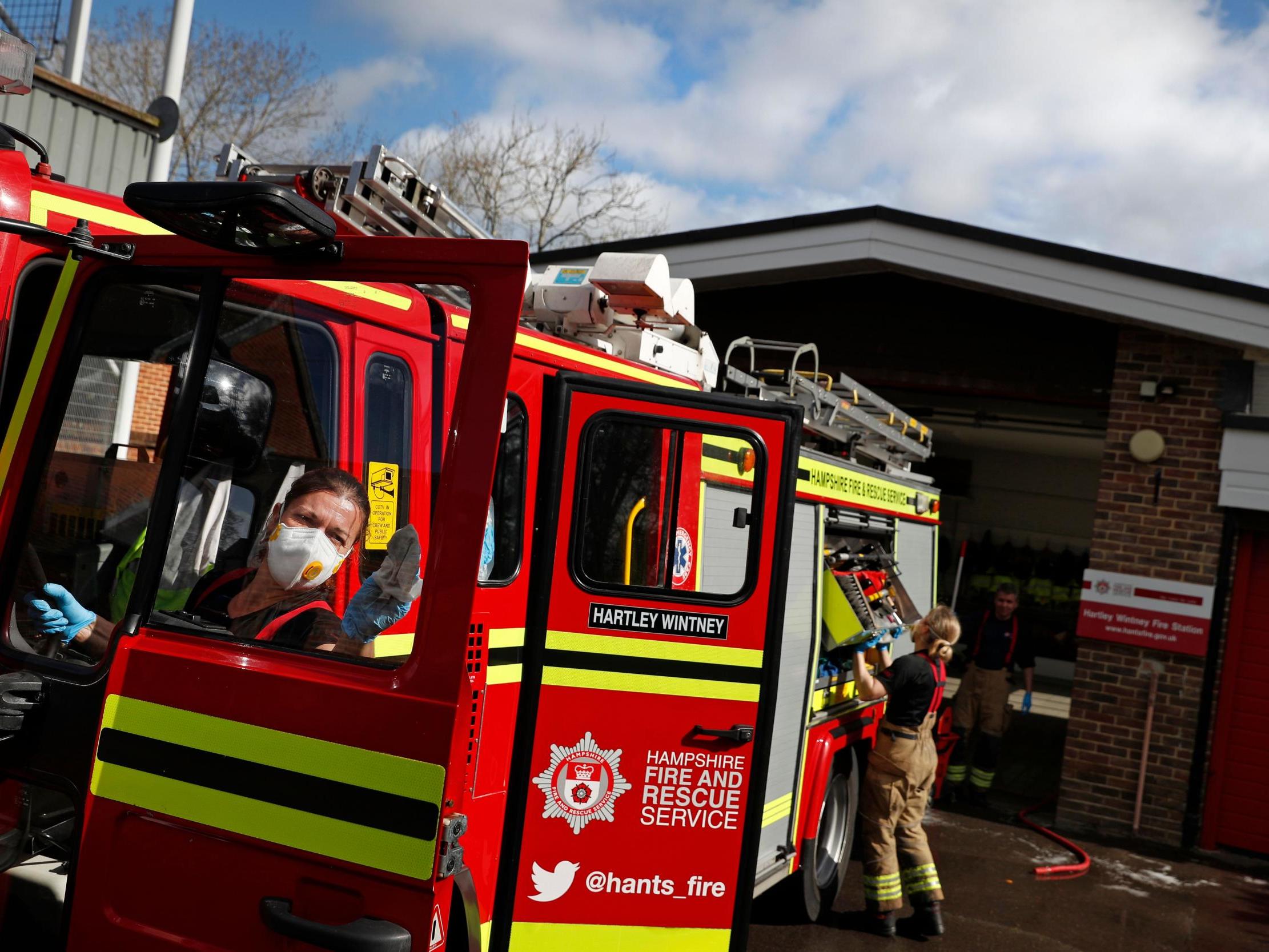‘We hoped it would never come to this’: Firefighters begin moving bodies after ‘considerable number’ of coronavirus deaths in Midlands
‘It’s deeply unpleasant work, but it is, unfortunately, necessary at this time’

Firefighters have been drafted in to move the bodies of coronavirus victims in one of the UK’s most badly hit regions.
As rising casualties further strain emergency services, West Midlands Fire Service (WMFS) crews have begun to retrieve bodies from hospitals, care homes and homes.
Andrew Scattergood, regional secretary of the Fire Brigades Union (FBU), said "we hoped that it would never come to this” but staff volunteering to work in the new Body Movement Team are “proud to provide a humanitarian service.”
Firefighters are working 12-hour day and night shifts, moving and handling bodies and placing the deceased into body bags, the union said.
In the week ending 3 April, the West Midlands recorded 1,812 deaths – more than any year since records began in 2005, according to Office for National Statistics data. Nearly one in four were attributed to coronavirus.
The region's mayor, Andy Street, was forced to play down concerns that its hospitals may struggle to cope with a disproportionately large tally of victims.
A new NHS Nightingale hospital has since opened at Birmingham's NEC, one of seven field hospitals planned across the country.
“We hoped that it would never come to this, but there are now a considerable number of casualties in the West Midlands and firefighters are ready to step up and assist with the movement of bodies,” Mr Scattergood said.
“Our members are proud to provide a humanitarian service. They are best placed to assist with this harrowing aspect of the crisis.
“All emergency services are pulling together in this difficult period to help our communities through this outbreak. It’s deeply unpleasant work, but it is, unfortunately, necessary at this time.”
The Body Movement Team is comprised of WMFS officers who have the necessary experience and training, the union said.
All firefighters taking part have volunteered to carry out the work. The union has secured training and health and safety arrangements in the West Midlands, after a national agreement was reached at the end of March.
On Thursday, it was agreed that firefighters across the nation would also assist with antigen testing, transportation of NHS outpatients to appointments or to receive urgent care, and providing instruction to others on non-blue light ambulance driving, the Local Government Association announced.
The West Midlands team has undergone psychological readiness training covering emotional resilience, welfare, compassion fatigue, and burnout, the union said, and will be offered 24/7 support from the fire brigade.
The firefighters have also been provided with personal protective equipment including a face mask with a reusable respirator, the union said.
“Firefighters join their service to save lives and for most body recovery is a rare task,” said Steve Price-Hunt, the union’s regional brigade secretary.
“These teams will likely see more bodies far more frequently than they are used to – and do so under far more hazardous circumstances.
“We know this work will be difficult, but the FBU has worked hard to make sure that firefighters have the proper training and support to carry out this work safely.”
Join our commenting forum
Join thought-provoking conversations, follow other Independent readers and see their replies
Comments
Bookmark popover
Removed from bookmarks